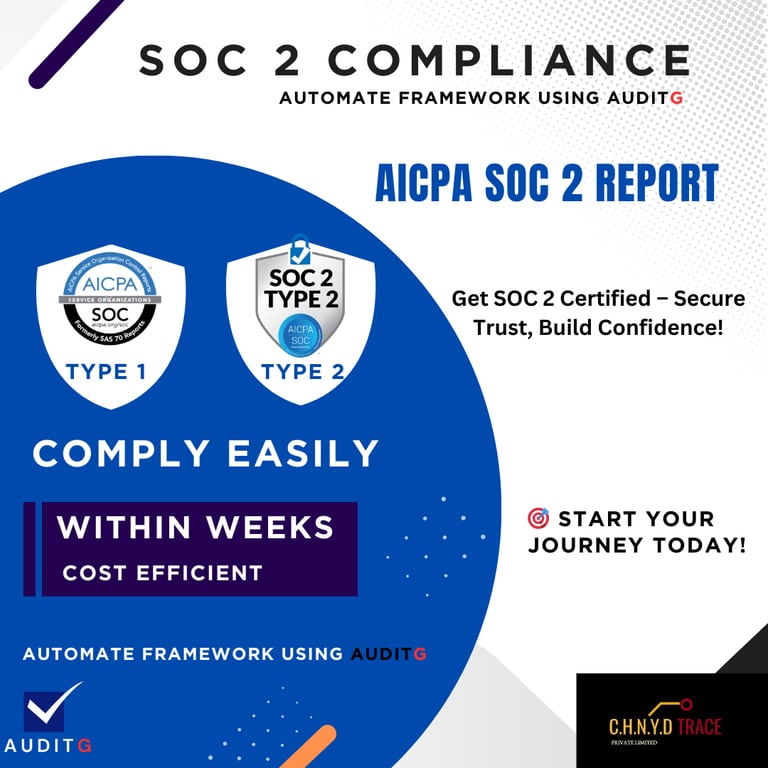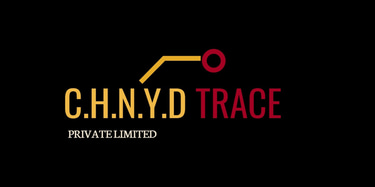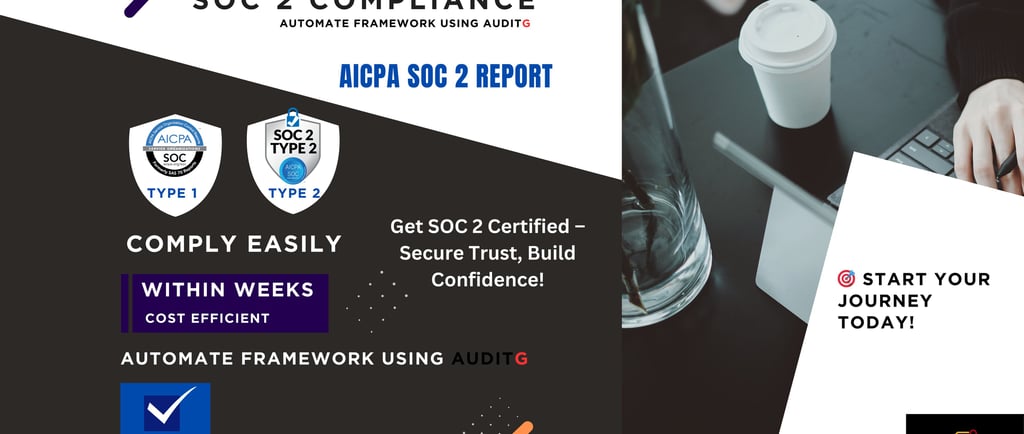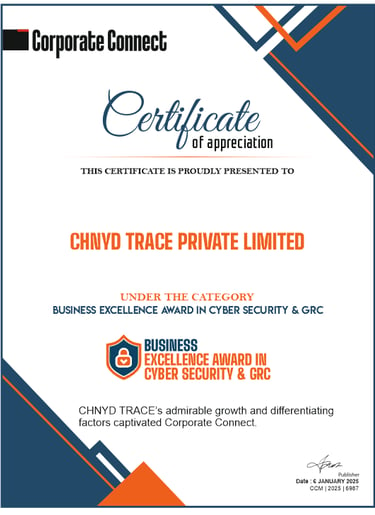soc certification full form
SOC Certification Full Form: Understanding SOC Standards for Secure Operations
SOC 2
11/30/20244 min read
What is SOC Certification?
SOC certification, which stands for System and Organization Controls certification, is a framework designed to evaluate an organization’s internal controls related to data security, availability, processing integrity, confidentiality, and privacy. This certification is particularly significant for organizations that handle sensitive information or provide services to other entities, such as cloud computing providers, software as a service (SaaS) businesses, and data processors. The primary objective of SOC certification is to enhance trust and transparency between service providers and their clients.
By undergoing a SOC audit, organizations can demonstrate that they adhere to stringent standards to safeguard client data. This certification serves as an assurance to customers that their information is managed with the utmost care and is secure from unauthorized access or breaches. With the increasing incidence of data breaches and cyber threats, the relevance of SOC certification has become even more pronounced in today’s business landscape. Organizations that attain SOC certification not only boost their credibility but also gain a competitive edge in the marketplace.
Moreover, SOC certification aims to promote effective risk management practices within organizations. By complying with the metrics established by the SOC framework, businesses can identify potential weaknesses in their security protocols and rectify them promptly. This proactive approach not only safeguards sensitive data but also aligns with regulatory compliance requirements, which are critical in various industries. As a result, SOC certification has become an essential component for organizations striving to reassure stakeholders about their commitment to security and operational excellence.
Types of SOC Standards
SOC (System and Organization Controls) standards are essential frameworks that provide a comprehensive way to assess and report on the internal controls of service organizations. The three primary types of SOC standards—SOC 1, SOC 2, and SOC 3—serve diverse purposes and cater to distinct audiences, each with specific attributes that address varying organizational needs.
SOC 1 is primarily focused on financial reporting and is designed for service organizations that impact the financial statements of their clients. This standard is often relevant for organizations that provide services such as payroll processing, billing, or data management. The SOC 1 audit assesses controls over financial reporting and is conducted according to Statement on Standards for Attestation Engagements (SSAE) No. 18. A practical example would be a cloud payroll service that needs to demonstrate the effectiveness of its internal controls related to customer payroll data.
SOC 2, on the other hand, is tailored for technology and cloud computing organizations that need assurance regarding their data security and privacy measures. This standard emphasizes the principles of security, availability, processing integrity, confidentiality, and privacy. Organizations such as data centers or software-as-a-service (SaaS) providers typically pursue SOC 2 compliance to communicate trustworthiness to their stakeholders. For instance, a SaaS company providing customer relationship management (CRM) tools may utilize SOC 2 to validate its commitment to securing customer data.
Lastly, SOC 3 is a public-facing version of SOC 2 that offers a general overview of an organization's controls related to the Trust Services Criteria. This certification is especially beneficial for organizations wishing to publicly assert their audit findings. An example would be a cloud storage provider that may want to display its SOC 3 report on its website to build trust with potential customers seeking data hosting services. As such, these three SOC standards collectively enable organizations to address their unique control needs and enhance their credibility in the marketplace.
The SOC Certification Process
Obtaining SOC certification involves a structured and methodical approach designed to ensure organizations meet the required standards for secure operations. The first step in the SOC certification process is performing a pre-assessment. This initial evaluation helps organizations identify existing gaps in their internal controls and operational security protocols. By conducting this pre-assessment, organizations can gain insights into areas that require improvement before undergoing a formal SOC audit.
The next pivotal phase involves engaging an external auditor, who possesses the requisite qualifications and experience in evaluating an organization's adherence to SOC standards. This auditor plays a critical role in objectively assessing the organization’s compliance with the established criteria. The external auditor will provide guidance on best practices, conduct interviews, and review documentation to ensure comprehensive evaluation. The outcome of this engagement is essential, as it directly impacts the organization’s ability to achieve SOC certification.
Following the auditor's evaluation, the reporting phase commences. At this juncture, the external auditor prepares a detailed report outlining the findings of the assessment. This report not only highlights areas of compliance but also notes any deficiencies that may hinder certification. Organizations are encouraged to scrutinize this report closely, as it serves as a roadmap for remediating identified issues. By addressing these shortcomings, organizations can enhance their operational security and bolster their chances of obtaining a successful SOC certification.
Finally, preparing for a SOC audit involves fostering a culture of compliance and implementing robust security practices. Organizations should conduct regular training sessions and maintain up-to-date documentation to streamline the auditing process. Moreover, leveraging the certification process allows organizations to enhance their operational efficiency and instill confidence among clients and stakeholders in their commitment to secure operations.
Benefits of SOC Certification for Organizations
Obtaining SOC certification offers significant advantages for organizations, particularly in today’s rapidly evolving regulatory and technological landscape. One of the most crucial benefits is enhanced customer trust. When organizations achieve SOC compliance, they demonstrate a commitment to safeguarding sensitive data and adhering to industry standards. This credibility can strengthen relationships with clients, as they are more likely to engage with a business that has undergone rigorous auditing and achieved SOC certification. The transparency that comes with SOC reports provides clients peace of mind, fostering loyalty and long-term partnerships.
Another substantial advantage refers to an improved security posture. SOC certification helps organizations implement industry best practices and internal controls, which can lead to reduced security risks. By conducting comprehensive audits, organizations can identify vulnerabilities and rectify them proactively, minimizing the potential for data breaches and cyberattacks. This heightened focus on security not only protects the organization but also helps maintain the integrity of client data, contributing to overall business resilience.
Moreover, SOC certification can drive operational efficiencies by introducing streamlined processes and improved resource allocation. This certification process often requires organizations to evaluate and refine their existing operations, leading to more effective systems and workflows. As a result, these efficiencies can translate into cost savings and better service delivery, giving organizations a competitive edge in the marketplace.
In addition to these practical benefits, organizations may find that SOC certification enhances their regulatory compliance. Many industries have stringent compliance requirements, and demonstrating adherence to SOC standards can simplify audits and regulatory scrutiny. Case studies, for example, have shown how organizations that adopt SOC standards experience smoother transitions during compliance evaluations, mitigating risks associated with potential non-compliance penalties.
Ultimately, the cumulative advantages of enhanced customer trust, improved security posture, operational efficiencies, competitive advantage, and regulatory compliance position organizations for sustainable success in their respective markets.
Contact Us for SOC 2
Reach out for SOC 2 Type 2 certification inquiries and AICPA attestation details. We're here to assist you with your compliance needs.








